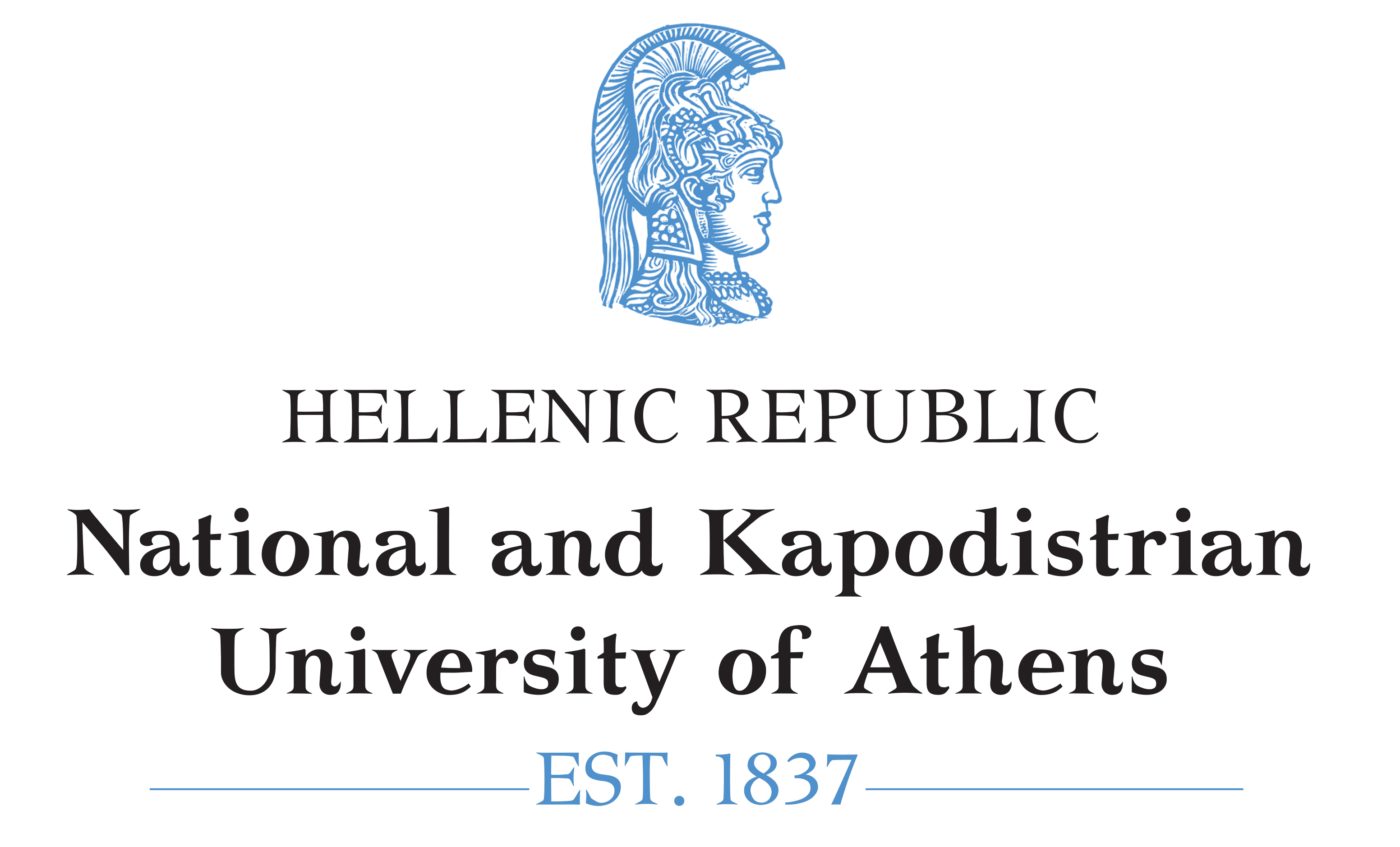- Αρχική
- NEWS AND EVENTS
- THE PROGRAM
- ADMISSIONS
- APPLICATION
- RESOURCES
-
ACADEMIC STAFF
- GEORGIOS ARABATZIS
- DIMITRA ANDRIANOU
- SOPHIA ANEZIRI
- ATHENA BAZOU
- GIORGOS BOUROGIANNIS
- AIKATERINI - NINA CARVOUNIS
- NIKOLAS DIMAKIS
- ELENI FASSA
- MYRTO GARANI
- NIKOS GIANNAKOPOULOS
- NIKOLAOS HAROKOPOS
- ROSALIA HATZILAMBROU
- NIKOLETTA KANAVOU
- CHRYSANTHOS KANELLOPOULOS
- GRAMMATIKI KARLA
- STYLIANOS KATAKIS
- EURYDICE KEFALIDOU
- KONSTANTINOS KOPANIAS
- AIKATERINI KOROLI
- EVGENIA D. MAKRYGIANNI
- STEPHANOS MATTHAIOS
- ANDREAS MICHALOPOULOS
- GIORGOS MITROPOULOS
- ANDREAS MORAKIS
- YIANNIS PAPADATOS
- SOPHIA PAPAIOANNOU
- AMPHILOCHIOS PAPATHOMAS
- VASSILIS PETRAKIS
- VAIOS VAIOPOULOS
- DIMITRIS PLANTZOS
- ELENI PSOMA
- MICHEL ROGGENBUCKE
- MARIANNA THOMA
- GIORGOS VAVOURANAKIS
- ANASTASIA VERGAKI
- IOANNIS VOSKOS
- TIMETABLE
- CONTACT
-
GALLERY
- VIDEOS
- PNYX, JULY 2021
- NATIONAL ARCHAEOLOGICAL MUSEUM, JULY 2021
- LYCEUM OF ARISTOTLE, NOVEMBER 2021
- THEATRE OF DIONYSUS, NOVEMBER 2021
- CRETE, NOVEMBER 2021
- ARCHAEOLOGY AND HISTORY OF ART MUSEUM AND CONSERVATION LABORATORY, SCHOOL OF PHILOSOPHY, DECEMBER 2021
- KERAMEIKOS, DECEMBER 2021
- EPIGRAPHIC MUSEUM, JANUARY 2022
- BRAURON, JANUARY 2022
- MYCENAE AND TIRYNS, APRIL 2022
- ANCIENT AGORA OF ATHENS, MAY 2022
- OLYMPIA AND DELPHI, MAY 2022
- NATIONAL ARCHAEOLOGICAL MUSEUM, JUNE 2022
- ACROPOLIS, JUNE 2022
- PARTICIPATION IN ARCHAEOLOGICAL SURVEY: IERAPETRA, CRETE, JULY-AUGUST 2022
- ANCIENT AGORA OF ATHENS, NOVEMBER 2022
- CRETE, NOVEMBER 2022
STRUCTURE
Academic year 2025-26
1st semester (Total ECTS: 30)
- 75101 Introduction to the Discipline of Archaeology (8 ECTS)
- 75102 Introduction to Historical Studies (8 ECTS)
- 75103 Ancient Greek Literature: An Overview (8 ECTS)
- 75104 Greek I + Latin I (6 ECTS)
2nd semester (Total ECTS: 30)
- 75201 Aegean civilizations: a survey (8 ECTS)
- 75202 Ancient Greek Art: an overview (8 ECTS)
- 75203 The History of the Greek Polis (8 ECTS)
- 75204 Greek II + Latin II (6 ECTS)
3rd semester (Total ECTS: 30)
- 75301 Prehistoric Crete: Minoan Palatial Society (8 ECTS)
- 75302 Ancient Greek Topography and Architecture (8 ECTS)
- 75303 Greek Historical Texts: Thucydides (8 ECTS)
- 75304 Greek III + Latin III (6 ECTS)
4th semester (Total ECTS: 30)
- 75401 Archaeology of the Mycenaean World (8 ECTS)
- 75402 Greek Art: Images and Meanings (8 ECTS)
- 75403 Studying Greek History through Inscriptions (8 ECTS)
- 75404 Greek IV + Latin IV (6 ECTS)
5th semester (Total ECTS: 30)
- 75501 Greece and the Eastern Mediterranean (8 ECTS) or 75506 From foraging to farming: The Mesolithic and Neolithic periods in the Aegean and the eastern Mediterranean (8 ECTS)
- 75602 Alexander to Kleopatra: History of the Hellenistic period (8 ECTS)
- 75503 Greek Drama: Texts and Images (8 ECTS)
- 75507 Latin prose: Cicero (6 ECTS)
6th semester (Total ECTS: 30)
- 75601 Hellenistic Art (8 ECTS) or 75606 Archaeological excavation: theory and practice (8 ECTS)
- 75502 History of Ancient Greek Religion (8 ECTS)
- 75603 Greek Historical Texts: Herodotus (8 ECTS)
- 75608 Latin poetry: Catullus & Horace (6 ECTS)
7th semester (Total ECTS: 34)
- 75701 Greek Athletics and the History of Sport (8 ECTS)
- 75702 Homer and Greek Mythology (8 ECTS)
- 75703 Reading Greek Papyri (8 ECTS)
- SEMINAR *(10 ECTS)
* In the academic year 2025–2026, students can choose between two seminars:
- 75818 Greek Literature of the Hellenistic and the Imperial Period (Undergraduate Seminar) (10 ECTS)
- 75810 Funerary Practices and the Archaeology of Ancestors (Undergraduate Seminar) (10 ECTS)
8th semester (Total ECTS: 34)
- 75805: Roman Imperial History and Literature (8 ECTS)
- 75802 Greek Philosophy: Plato and Aristotle (8 ECTS)
- 75803 Ancient Greeks at War: Xenophon (8 ECTS)
- SEMINAR * (10 ECTS)
* In the academic year 2025–2026, students can choose between two seminars:
- 75814 Greek Colonisation (Undergraduate Seminar) (10 ECTS)
- 75820 The Age of Augustus: Ovid Heroides (Undergraduate Seminar) (10 ECTS)
Total ECTS: 248
** A number of seminars are available every semester; topics may include:
75810 Funerary Practices and the Archaeology of Ancestors
75811 Topography of ancient Macedonia
75812 Household and social structure in Prehistory
75813 Household Archaeology: the Classical World
75814 Greek Colonization
75815 The Greek polis under Roman rule
75816 Private associations and gymnasial associations in the ancient Greek cities
75817 Greek Numismatics, Monetary Policies, and the Economy
75818 Greek Literature of the Hellenistic and the Imperial Period
75819 The Reception of Homeric Epic in the Roman Epic Tradition
75820 The Age of Augustus: Ovid Heroides
On-site classes and field trips: most courses include on-site classes and/or hands on instruction at the University Museum of Archaeology and History of Art, as well as many archaeological sites and museums in Athens and its vicinity. Special one- or two-day field trips may also be organized within specific courses and extended field trips to major Greek archaeological sites and museums (Crete; Santorini; Macedonia etc) are also offered as part of the curriculum.
Excavation work: in the course of their studies, students are introduced to archaeological excavation theory and practice at the University Excavation in Marathon.
